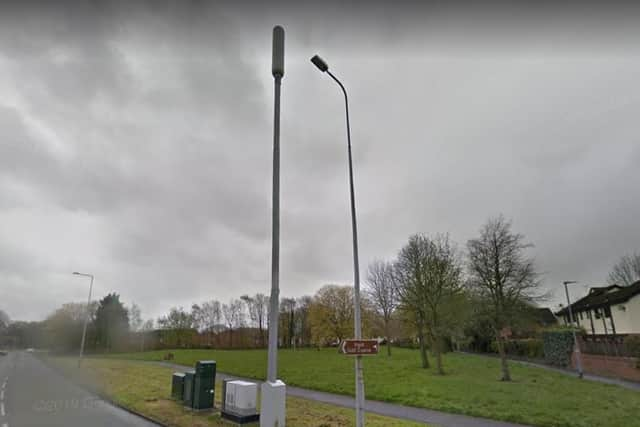Inspector rules on controversial 5G phone mast in Preston
and live on Freeview channel 276
Town Hall bosses had refused planning permission for the 5G mast and its associated cabinets on a grass verge in Tanterton Hall Road saying they would look unsightly.
But Mobile Broadband Network Ltd (MBNL) successfully challenged the decision on appeal, arguing that the social and economic benefits of super-fast connectivity would be "significant, particularly when viewed in the context of increasing patterns of working from home during the Covid crisis."
Advertisement
Hide AdAdvertisement
Hide AdThe new mast will replace a 14.5-metre high pole for the EE and '3' networks which has been in place for some time just 15-metres away on the same grass verge, but is seen as outdated.


The council's argument for blocking the original application was that the new mast would be "overly prominent" in that roadside spot between Sheraton Park and Dukes Meadow.
But, while the planning inspector agreed it would "detract from the character and appearance of the area," she felt technological issues should take priority.
"The benefits of the proposal in contributing to high quality and reliable communications infrastructure were recognised by the inspector," says a report of the appeal hearing.
Advertisement
Hide AdAdvertisement
Hide Ad"These infrastructures are seen as essential to support economic growth and social wellbeing and the upgraded services would support local businesses and the local community."


MBNL had argued that there were no other suitable sites for the mast in the local area. The company said the existing mast could only support 2G, 3G and 4G coverage and was not capable of being converted to take 5G.
A 16-metre pole was the lowest height possible to deliver 5G in that area.